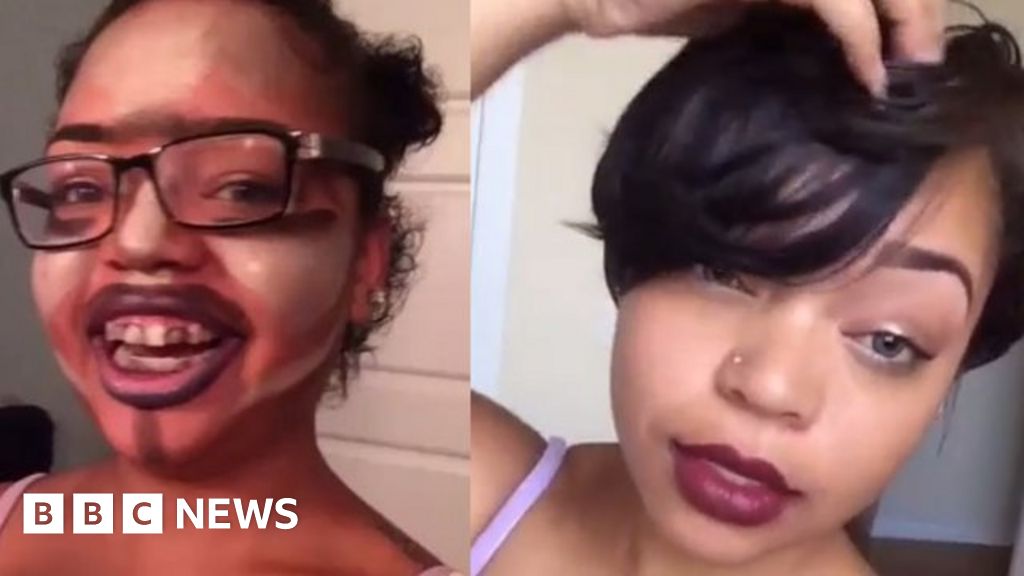When we talk about ugly people from different cultures, backgrounds, or even social media trends, it’s important to understand that beauty and ugliness are subjective concepts. What one person finds unattractive, another might adore. In today’s world, the idea of "ugly" has been redefined by society, media, and even science. So, let’s dive into this topic with an open mind and explore how perceptions of ugliness have evolved over time. This isn’t just about appearances—it’s about understanding human diversity in all its forms.
There’s a common misconception that ugly people are somehow lesser or unworthy. But the truth is, everyone has their own unique qualities that make them special. From history to modern-day pop culture, we’ve seen countless examples of individuals who were once labeled "ugly" but went on to achieve greatness. This article aims to challenge societal norms and encourage acceptance of all kinds of people, regardless of how they look.
Before we get into the nitty-gritty details, let’s establish one thing: the word "ugly" doesn’t have to be offensive. In fact, it can be empowering when used in the right context. By embracing our flaws and imperfections, we can redefine what it means to be beautiful. So, if you’re ready to rethink your ideas about ugly people from around the world, keep reading!
Read also:Ryan Trahan Net Worth The Untold Story Of A Gaming Sensation
Understanding the Concept of Ugly People
What does it mean to be considered "ugly"? Is it purely based on physical appearance, or are there deeper factors at play? Historically, societies have had varying standards of beauty, and what was deemed unattractive in one era might be celebrated in another. For instance, during the Renaissance, fuller figures were admired, while today’s standards often favor slimness.
Biological and Psychological Factors
From a scientific perspective, our brains are wired to find certain traits more appealing than others. Symmetry, clear skin, and proportionate features tend to be associated with health and fertility. However, this doesn’t mean that people with asymmetrical faces or acne are inherently "ugly." Psychological studies show that personality and confidence play a significant role in how attractive someone appears to others.
- Symmetry is linked to genetic health.
- Confidence can enhance perceived attractiveness.
- Cultural norms heavily influence beauty standards.
Ugly People From Around the World
Let’s take a closer look at how different cultures perceive ugliness. In some countries, traits like freckles or scars are considered beautiful, while in others, they might be frowned upon. It’s fascinating how these differences shape global attitudes towards appearance. For example, in Japan, pale skin has traditionally been prized, whereas in Nigeria, darker skin tones are celebrated.
Regional Beauty Standards
Here’s a quick breakdown of beauty standards in various regions:
- Asia: Small eyes and fair skin are often idealized.
- Africa: Curvy bodies and bold hairstyles are admired.
- Europe: Tall stature and sharp features are favored.
- America: Individuality and uniqueness are increasingly valued.
These differences highlight the importance of cultural diversity and the need to appreciate all forms of beauty.
Ugly People in Media and Pop Culture
Media plays a massive role in shaping public opinion about beauty and ugliness. Movies, TV shows, and social media platforms often portray stereotypical "ugly" characters as villains or comic relief. However, there are also inspiring stories of individuals who defy these stereotypes and prove that inner beauty matters more than outer appearance.
Read also:How Tall Is Jdot Breezy Unveiling The Stats Behind The Rising Star
Breaking Stereotypes
Some notable examples include:
- The Phantom of the Opera: A character whose disfigurement hides a brilliant mind.
- Beauty and the Beast: A tale that teaches us not to judge by appearances.
- Shrek: An ogre who becomes a hero despite his unconventional looks.
These narratives remind us that true beauty comes from within.
Scientific Studies on Ugly People
Research has shown that people who are considered "ugly" may face certain challenges in life, such as discrimination in job interviews or social settings. However, studies also indicate that these individuals often develop stronger resilience and empathy. Let’s explore some key findings:
- Ugly people may receive less attention in social situations.
- They tend to focus more on inner qualities like kindness and intelligence.
- Overcoming societal bias can lead to personal growth and success.
So, while being labeled "ugly" might seem like a disadvantage, it can actually be a catalyst for positive change.
Ugly People and Mental Health
The stigma surrounding ugliness can have a profound impact on mental health. Individuals who feel rejected or judged based on their appearance may struggle with self-esteem issues, anxiety, or depression. It’s crucial to address these concerns and promote body positivity for everyone.
Building Self-Confidence
Here are some tips for boosting self-esteem:
- Focus on your strengths and achievements.
- Surround yourself with supportive friends and family.
- Practice self-care and self-compassion regularly.
Remember, you are more than your physical appearance. Celebrate your uniqueness and embrace who you are!
Ugly People in History
Throughout history, there have been many influential figures who were initially labeled "ugly" but went on to achieve greatness. Take Napoleon Bonaparte, for example. Despite his short stature and plain looks, he became one of the most powerful leaders in Europe. Or consider Frida Kahlo, whose striking appearance and physical disabilities didn’t stop her from becoming a legendary artist.
Lessons from the Past
These stories teach us that external appearances shouldn’t define our worth. Instead, it’s our actions, talents, and character that truly matter. By learning from history, we can create a more inclusive and accepting society for future generations.
Ugly People and Social Media
In today’s digital age, social media platforms like Instagram and TikTok have both positive and negative effects on how we perceive beauty. On one hand, they provide a space for self-expression and diversity. On the other hand, they perpetuate unrealistic beauty standards that can harm self-image.
Tips for Navigating Social Media
Here’s how you can use social media responsibly:
- Follow accounts that promote body positivity and inclusivity.
- Avoid comparing yourself to others online.
- Share your authentic self and inspire others to do the same.
By fostering a supportive online community, we can help combat the negativity surrounding ugly people.
Ugly People and Relationships
When it comes to relationships, attraction goes beyond physical appearance. Many people find that shared values, interests, and communication skills are far more important than looks. In fact, studies show that couples who prioritize emotional connection tend to have stronger, more fulfilling relationships.
Building Healthy Relationships
To foster meaningful connections:
- Communicate openly and honestly with your partner.
- Focus on shared experiences and common goals.
- Practice patience and understanding in all interactions.
Ultimately, love and respect are the foundations of any successful relationship.
Conclusion: Redefining Ugly People
In conclusion, the concept of "ugly people" is far more complex than it seems. While societal norms and media influence our perceptions, it’s essential to recognize that beauty comes in all shapes, sizes, and forms. By embracing diversity and celebrating individuality, we can create a world where everyone feels valued and appreciated.
So, the next time you hear someone call someone else "ugly," challenge that notion. Encourage them to see the person’s inner qualities and unique attributes. Together, we can break down barriers and promote acceptance for all.
Don’t forget to leave a comment below sharing your thoughts on this topic! And if you enjoyed this article, feel free to share it with your friends and family. Let’s keep the conversation going and make a difference in how we view beauty and ugliness.
Table of Contents
- Understanding the Concept of Ugly People
- Ugly People From Around the World
- Ugly People in Media and Pop Culture
- Scientific Studies on Ugly People
- Ugly People and Mental Health
- Ugly People in History
- Ugly People and Social Media
- Ugly People and Relationships
- Conclusion: Redefining Ugly People


